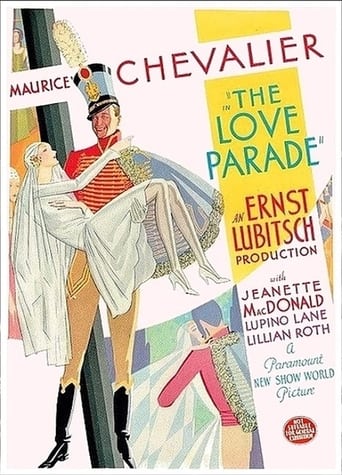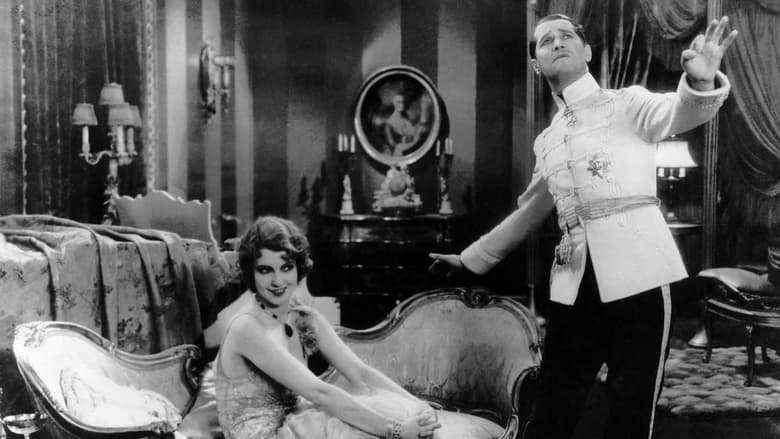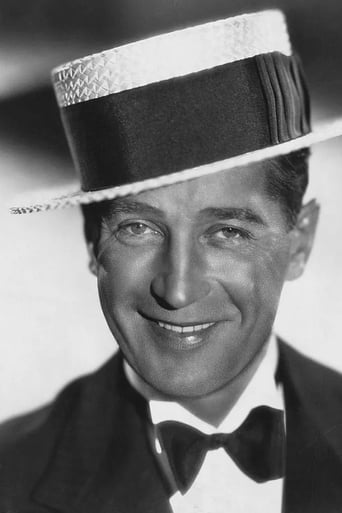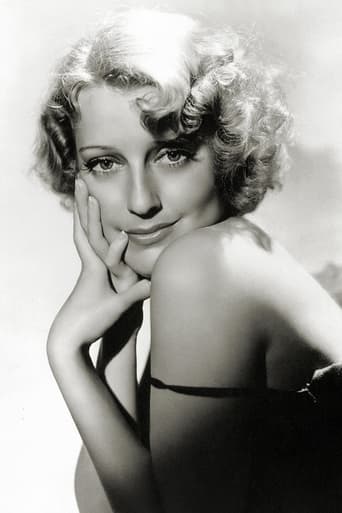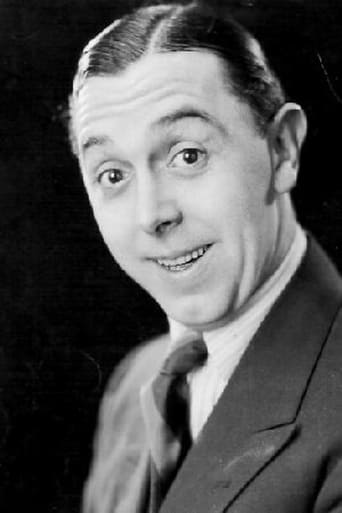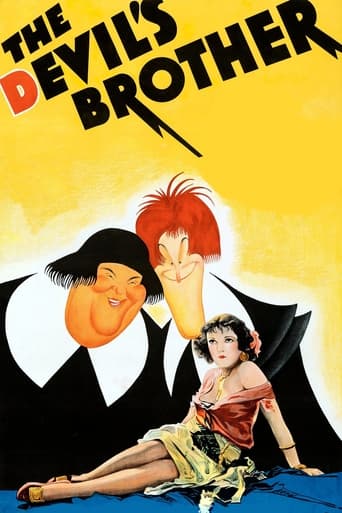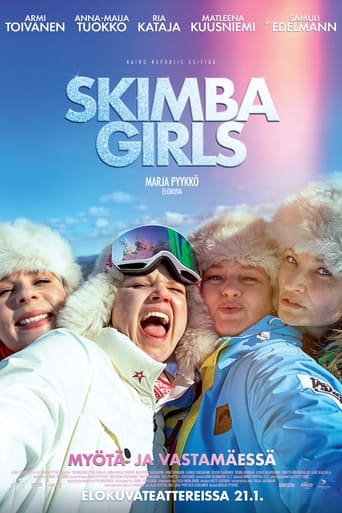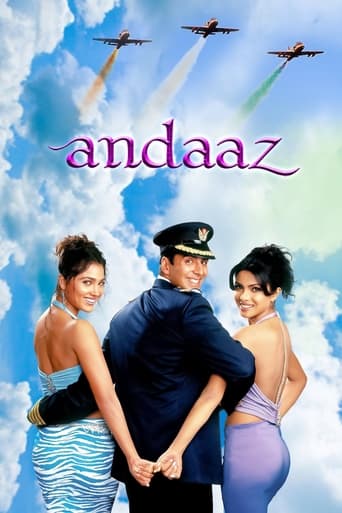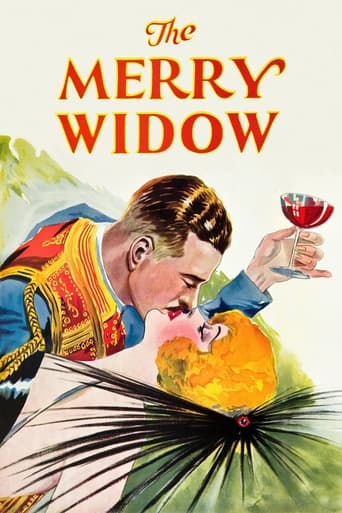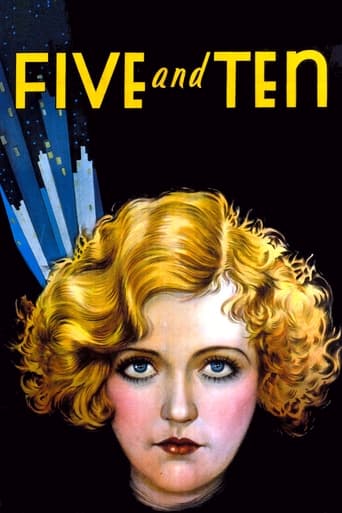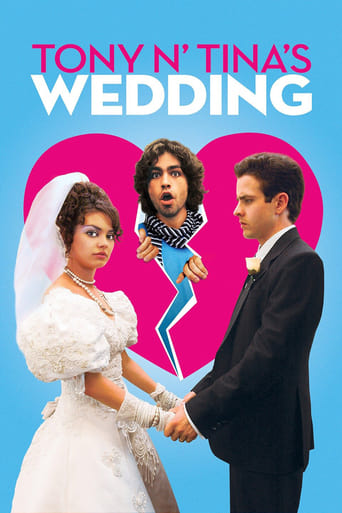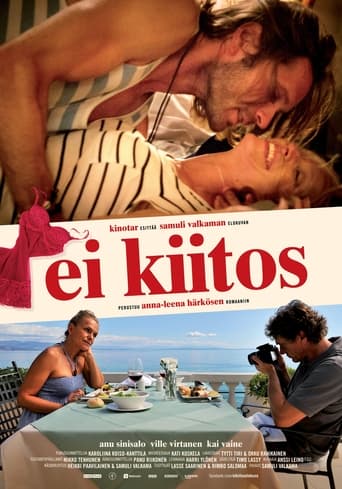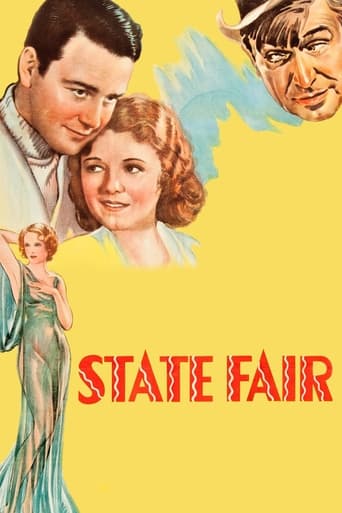The Love Parade (1930)
The queen of mythical Sylvania marries a courtier, who finds his new life unsatisfying.
Watch Trailer
Free Trial Channels
Cast


Similar titles
Reviews
Very very predictable, including the post credit scene !!!
Easily the biggest piece of Right wing non sense propaganda I ever saw.
Great story, amazing characters, superb action, enthralling cinematography. Yes, this is something I am glad I spent money on.
This is a small, humorous movie in some ways, but it has a huge heart. What a nice experience.
For the last three decades now I've considered Ernst Lubitsch's Trouble In Paradise from 1932 to be one of the best films ever made, but it's taken me all this time to get round to his Love Parade made a few years earlier. Mainly because in the last three decades it's never been shown on UK TV; their schedules are so packed with indispensable brilliant TV they couldn't find an empty 2 hour slot. Is it worth looking up? Well yes, it's a fascinating early talkie/musical, very redolent of the future Trouble In Paradise and One Hour With You (and Love Me Tonight), with lavish sets, sumptuous décor and elegant costumes and a bearable plot and music.The Queen of Sylvania (Jeanette MacDonald) with her many ministers urging is keen to get married, Count Alfred (Maurice Chevalier) blows in fresh from life and death romantic scandals in Paris and they fall for one another. Except that he eventually objects to being her Poodle Consort... There are quite a few pretty forgettable songs the best by miles being the title song which is reprised twice, although slapstick music hall artist Lupino Lane also gets to sing a witty ditty with Lillian Roth as butler and maid respectively. Mustachioed minister Eugene Palette's voice never sounded so razor-like! It's continually charming and witty in Lubitsch's best style, acting and singing fresh and stilted at the same time, interesting and even riveting in places – the print and sound are in fine condition considering it was made in 1929. By the way, does this mean that a few years later the Queen appointed dirty-necked Trentino (Louis Calhern) as Sylvanian Ambassador to Freedonia for Duck Soup?!It's not Trouble In Paradise - nothing is, and at nearly 2 hours long it has a lot of padding to it, but as it opens up such a completely different and lovely world to us now it's well worth watching.
Why is the wife of a King always called the Queen, while the husband of the queen relegated to "Consort"? That's what newleywed royal Maurice Chevalier wants to know as he is told by his wife (Queen of Sylvania) how to spend his day, then reminded to "rest" for obvious reasons. Originally, he was just to be her military attaché, to accompany her as a sort of bodyguard/companion, a la Queen Guenevere's "Take Me to the Fair" in "Camelot". Because of a rather sordid reputation (having been evicted from Paris after being discovered with a married woman), MacDonald begins to see Chevalier more as a baby maker than her companion, and what the throne needs is a male heir. No longer "The Virgin Queen", MacDonald goes about her daily royal duties while Chevalier is idle day after day.MacDonald's film debut is a total triumph, and made her a movie star. Chevalier, too, was new to Hollywood, and this was the first of four pairings for the two. There are arguments over whether Chevalier or Nelson Eddy was a better screen co-star, and I must pick Chevalier. This early talkie movie musical helped advance the technology of sound, and show only a slight creakiness. The extremely lavish production is helped by comic performances by Lupino Lane and Lillian Roth who steal the film with their comic duet "Let's Be Common".This film is remarkably feminist for its time. Chevalier's impish performance is a boyish wink at the audience of how he'll work things out, and MacDonald's womanly wiles could do more than the league of Nations tried and failed to do after World War I. It has a wonderfully witty screenplay that holds up extremely well more than 80 years later.
100: The Love Parade (1929) - released 11/19/1929, viewed 6/10/08.DOUG: I always said that as soon as they released an Ernst Lubitsch box set, I would check it out. As Lubitsch's first sound film, 'The Love Parade' would have closed out the 20's for us. This is my 5th Lubitsch film, and he has yet to disappoint me. Right from the start, Lubitsch has an excellent handle on how to utilize sound, dialogue, and music, but still gets plenty of mileage out of dialogue-free business, such as the opening scene. The two leads spark nearly as much chemistry as they would later in 'Love Me Tonight': Chevalier (in his second sound film) is charming as ever, and Jeanette McDonald (in her first film) is supremely sexy (really!), showing a lot more skin in several scenes than the Hays Code would have likely allowed. I thought the second half of the film lagged quite a bit; once the two are married, it's just a series of scenes of Alfred becoming miserable with his new life, suffering under the soul-crushing set-up of "many duties and no rights." Lupino Lane and Lillian Roth add a lot of cuteness, spunk, and verve to the proceedings as Alfred and Louise's respective sidekicks/hired help; their performance of "Let's Be Common" was my favorite musical number of the piece. Judging by his footwork, I'm guessing Lane came off of vaudeville. Although I enjoyed this movie less than the other four Lubitsch comedies I've seen, I still recommend it.KEVIN: Going back to 1929 we have this royal battle of the sexes, Lubitsch-style! Though not an essential, this movie was definitely worth checking out. The always reliable Maurice Chevalier (in his second sound film), and the lovely singer Jeanette MacDonald (in her first film) star in The Love Parade, Ernst Lubitsch's teasing romantic musical. When a suave ambassador (Chevalier) gets in one too many scandals in his beloved Paris, he returns home to his native Silvania, where he catches the eye of the man-starved queen (MacDonald). But when they wed, he becomes not a king but the "queen-consort," a position with many mundane duties but no responsibilities or power of any kind. That and his lovely new wife is more focused on her queenly duties. Naturally, he finds his new life more than a little unsatisfying. I found the struggle of Chevalier's character to be fresh and appealing, portraying a man who refuses to remain a trophy husband. There were several scenes where it felt as though the gender roles had been reversed, though the scene in the opera house where Chevalier basically taunts MacDonald into submission worried me some. But overall, the irresistible team of Chevalier & Lubitsch definitely met my expectations. The dialogue-free opening scene was a stitch. MacDonald manages to strike the right balance of lovelorn maiden and blue-blooded royal. Lupino Lane and Lillian Roth (who would appear the following year in Animal Crackers) make a great team and provide some fantastic sidekick laughs (and some of the more inventive dance numbers).Last film viewed: Wings (1927). Last film chronologically: The Cocoanuts (1929). Next film viewed: The Divorcée (1930). Next film chronologically: Anna Christie (1930).
Domestic difficulties between the strong-willed Queen of Sylvania and her stubborn Consort may cause them both to miss THE LOVE PARADE.Director Ernst Lubitsch spread his special brand of sophisticated naughtiness in this visually impressive & engaging early talkie musical. Depending much on the intelligence of the viewer, the film serves up unexpected bons mons of wit (e.g. the dog barking his farewells to the pooches of Paris) which never fail to enchant. Lubitsch would contribute a series of delightful little comedies over the next several years, making the title of this confection pertinent in more ways than one.Maurice Chevalier practically oozes Gaelic charm in a wonderfully hammy, ingratiating performance. His French charisma dominates the screen; he embraces his songs rather than just singing them. His immense joie de vivre & exceptional talent was perfectly attuned to the sound motion picture. In her film debut, the lovely Jeanette MacDonald proves a charming partner to Chevalier. Imperious or coquettish by turns, she beguiles the viewer as well as Maurice--her celebrated voice (when intelligible) put to good use in the seduction.British physical comedian Lupino Lane is a winner as Chevalier's highly energetic little valet; lanky Lillian Roth, as a palace maid, joins him for some humorous knockabout songs. Lionel Belmore & Eugene Palette bring appropriately hefty gravitas to their roles as government ministers. Diminutive Edgar Norton appears as an unflappable majordomo.Movie mavens will recognize silent screen comic Ben Turpin as a cross-eyed lackey, Russ Powell as the Afghan Ambassador and young Jean Harlow as one of a group of women applauding Chevalier at the theatre, all uncredited.

